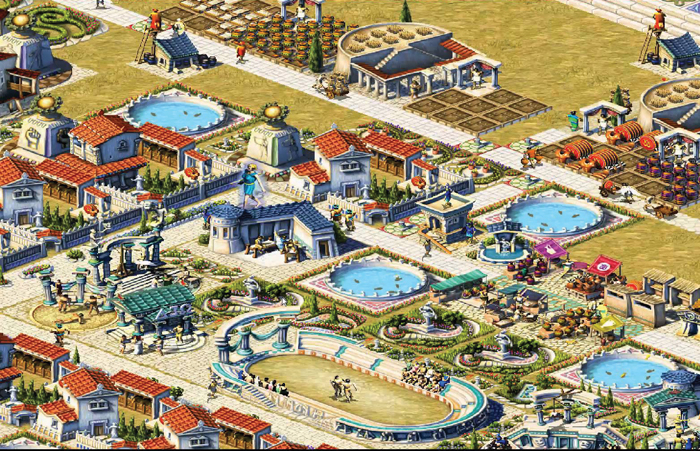
What was life like in Ancient Greece? Ancient Greece gave us a lot we use in the modern world, including democracy, the very foundation of world government, as well as languages, theatre, medicine, sports, and much more for which we will forever be indebted to them. Living among the thriving Greek city-states would have been rather nice, one thinks.
If you’ve ever wondered what living in Ancient Greece was like, then Zeus: Master of Olympus is definitely the game for you.
Part of game studio Sierra’s city-building game series, which also includes titles set in Pharaonic Egypt, Ancient Rome and the China of the Middle Kingdom, Zeus: Master of Olympus sees you appointed mayor of a major Greek city. You can pick any city of your choice. Thebes, Athens, Argos, Pella, there are quite a few thriving cities for you to settle in.
Er, once you build them, that is: Zeus: Master of Olympus gives you a plot of land, teeming with resources (some, not all) and expects you to build a thriving metropolis from the ground up. Truth be told, it is great fun. Players start out simple, by providing food, water and housing to townspeople.
Coastal cities have access to teeming schools of fish and sea urchins nesting in the shallow waters, while those that are located further inland can make use of fertile Greek soil to grow olives, wheat, and grapes. The land is also well suited to raise herds of cattle and goats.
But Zeus: Master of Olympus also provides you the chance to turn your food into fortune. Crops from your farms are transported by ox carts to your presses, where they are readied for export across Greece on trade ships. Alternatively, you can stock these valuable items in your agora – Greek for open air market – and watch with happiness as merchants flock to your cities.
There are many other things cities will ask you for. Marble, widely used in some of Greece’s most important buildings, are coveted by settlements all over the Aegean, and are the cornerstone of many an ambitious construction project. You need to build theatres and libraries for your artists and scholars to thrive in, gymnasiums for your athletes to train, and shrines for your people to find succour from a hard day’s work. Some might think they’d be better off without, but that will reflect really, really poorly when your city sends its representatives to the Olympic Games in Olympia.
As your city becomes more prominent, it will also require grander buildings to reflect its progress and prosperity. The Hippodrome, a long arena where chariots race, much to the enthusiasm of your assembled audiences, will provide great entertainment to your people, and can be as long as you want it to be. But that might earn the ire of the other Greek city-states, who might send their own forces to attack you. This is when you need to muster your forces. Soldiers in Zeus: Master of Olympus are not part of a standing army, but are, instead, conscripted. A call to arms will ensure that all non-essential personnel are kitted out for military duty, and if you’re lucky enough, one of Greece’s greatest heroes will fight alongside them.
Will it be Jason of the Argonauts, Perseus the Archer, Hercules the Mighty or brave Odysseus? We can’t tell you that. You’ll need to play to find out.
– [email protected]
The Short and Skinny Name:
Genre: Historical city-building
Produced by: Sierra Entertainment and Impressions Games
What it’s about: Go back in time, and step into the very cradle of modern civilisation. Explore all ancient Greece has to offer as you transform your city into a metropolis that has gained renown across the ancient world
Platforms: Microsoft Windows
Where to buy: Amazon, GOG games, Steam Store, G2A Games
IGN Rating: 9.1/10